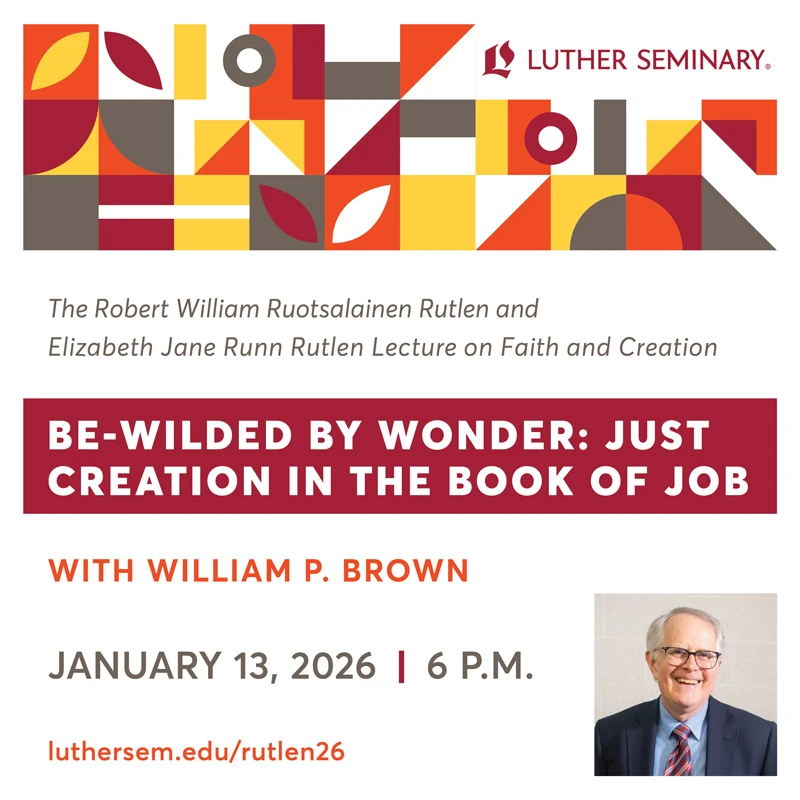If you were stuck on a desert island and you could only bring one book of the Bible, which would it be? You might respond, “That’s impossible! How could I choose only one of the Bible’s 66 books (even more if you are Catholic). I love the whole Bible!” But if we are honest, that sentiment is not entirely true. We all have a canonA canon is a general law or principle by which something is judged. The body of literature in the Old and New Testaments is accepted by most Christians as being canonical (that is, authentic and authoritative) for them. More within a canon. That is, a selection of books with which we resonate the most or simply like the best. Not every book in the Bible holds the same weight when it comes to what we believe about God and following JesusJesus is the Messiah whose life, death, and resurrection are God's saving act for humanity. More. And I think the one book that would accompany you during that desert stay just might be your theology in a nutshell.
We all have core commitments that ground our theological beliefs and shape our foundational understandings of who God is, what God does, and inform the claims we make about God. But it’s not very often that we talk about having a theology. After all, isn’t that for pastors and preachers and people who work for and in the church? Don’t you have to be seminary trained to be a theologian? No. We are all theologians in that as persons of faith, we go about our lives anticipating experiences of God, expecting God to reveal God’s self in some way, and making sense of our lives through the lens of God’s active presence in the world.
So, what is your theology? Who is God for you? What characteristics of God do you hold up as critical for knowing how God acts? Do you have certain images or metaphors for God that animate your faith and on which you rely to sustain your faith?
So, let’s go back to that desert island. What’s the one book of the Bible you would pack in your suitcase? You might immediately assume it has to be one of the Gospels or one of the other New Testament books. After all, they are about Jesus. But Jesus is one of the Trinity. You could discover that when it comes to your theology, how you think about God, it’s a book, or even a story, from the Old Testament that speaks to you the most. Don’t overthink this, reasoning that you need to pick the perfect book. Go with your gut.
For me, the book that I would be sure to pack in my luggage is the Gospel of John. I didn’t know much about the Fourth Gospel until I took a class at seminary on John and then another in graduate school. At first, I was fascinated by how different John was from MatthewA tax collector who became one of Jesus' 12 disciples. More, Mark, and LukeThe "beloved physician" and companion of Paul. More. I was captivated by the stories that only appear in John—the wedding at Cana, the conversation between Jesus and the SamaritanSamaritans were a people who mostly lived between Galilee and Judea and were avoided or shunned by mainstream Judaism. Jesus' message, however, was so inclusive that he often spoke favorably of Samaritans as he did with the woman at the well (John 4) and in... More woman at the well, the healing of the man born blind, and the raising of Lazarus. And I found how John crafted his story of Jesus fun to research and study. As a result, my Ph.D. dissertation was on the Fourth Gospel, specifically chapter 10 and Jesus as the Good Shepherd.
But over time, I have realized that beyond New Testament scholarly interests, it was John’s central theological claim that drew me in and has held me to this day: that in the Word made flesh, God has drawn me into an intimate relationship with the Father, Jesus, and the HolyHoly is a term that originally meant set apart for the worship or service of God. While the term may refer to people, objects, time, or places, holiness in Judaism and Christianity primarily denotes the realm of the divine More Spirit. This relationship is one of deep abiding and absolute trust in the Good Shepherd who knows his sheep by name. And this relationship is what salvationSalvation can mean saved from something (deliverance) or for something (redemption). Paul preached that salvation comes through the death of Christ on the cross which redeemed sinners from death and for a grace-filled life. More truly is—here and now, for me and for the world God so loves. It is the incarnationIncarnation literally means "embodied in flesh." It is a Christian doctrine, based on the witness in John's Gospel, that God's Word was made flesh in the person of Jesus Christ. The Apostles' and Nicene Creeds confess the central importance of the incarnation of Jesus. More, God becoming fully us, that encapsulates what God’s love looks like and feels like.
This theological foundation has become the cornerstone not only for how I imagine God but also how I work and live. As a professor at a seminary, my pedagogical choices revolve around the workings of the Christian faith as nurturing and sustaining our relationship with God and relationships with others. As I embody my faith in my life, whether it’s in my personal life or in professional/vocational situations, I am intentional about how my decisions and my interactions flow from this core theological commitment.
In other words, your theology is what you believe about God, and your theology is how you choose to be and live. Put another way, what we do and say, how we live, reveals our theology. The kind of person you are makes a claim about who God is for you. As people of faith, we need to ask ourselves regularly: “What God will people see in me?” So, start packing. What’s in your suitcase?






